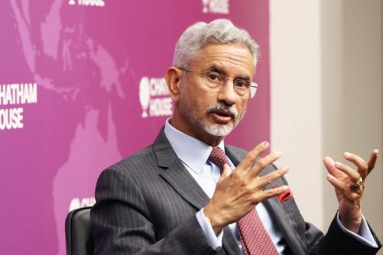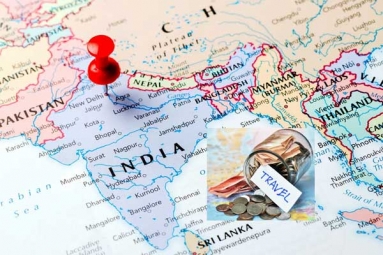
(Image source from: Scmp.com)
India has successfully convinced China to return to the patrolling agreements along the Line of Actual Control (LAC) in eastern Ladakh that were in place before the Galwan clashes in April 2020. Given that China had stubbornly refused to accept India's demand for the status quo for four years, this achievement is significant both diplomatically and militarily. The disengagement agreement came after extensive negotiations, with 17 rounds of working group meetings and 21 rounds of military dialogue. The agreement stipulates that in the pending areas, patrolling and grazing activities will revert to the situation as it existed in 2020, as stated by the Foreign Secretary and the External Affairs Minister. The agreement also paves the way for the first bilateral meeting between Prime Minister Narendra Modi and Chinese President Xi Jinping in Russia since the border standoff. The new agreement will allow Indian troops to resume patrolling up to their old patrolling points in Depsang and Demchok, which were the two major unresolved friction areas between the two nations.
The Pangong Lake and Galwan Valley were the sites of intense confrontations between the Indian and Chinese troops, resulting in casualties on both sides. The Depsang plains in the north of Ladakh and Demchok in the south were the main areas of dispute. China was reluctant to discuss these regions until recently, indicating their strategic importance. The Depsang Plains, in particular, hold significant military importance due to their flat terrain, which allows for easy troop and tank movements towards the border. The Chinese soldiers had intruded 15 km into areas patrolled by the Indian forces, raising concerns. The agreement provides hope for resolving the broader territorial dispute between India and China, as they have different perceptions of the Line of Actual Control (LAC), which defines the areas of physical control rather than territorial claims. The India-China border extends for 3,488 km.
The Aksai Chin region, which is part of the disputed area, belongs to Ladakh. India has consistently claimed that Arunachal Pradesh is an essential and inseparable part of the country. Additionally, the border agreement is expected to facilitate enhanced political and economic cooperation between the two Asian powerhouses. Following the Galwan Valley clashes, Chinese companies faced difficulties operating in India as the Modi administration tightened investment regulations.
The restoration of relations may lead to the resumption of direct passenger flights between India and China, which were halted for four years due to the COVID-19 pandemic. Business connections are expected to receive a significant boost. China has long been one of India's top trade partners, providing crucial telecom equipment and pharmaceutical raw materials. In 2020, India imposed additional scrutiny and security clearance requirements on investments from neighboring countries, primarily targeting China, which resulted in billions of dollars in proposed investments being stuck in the approval process.






















